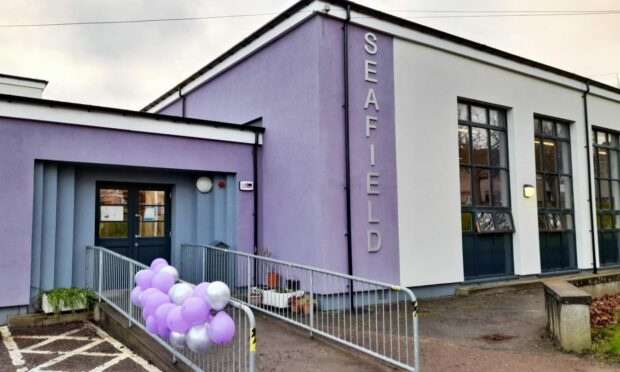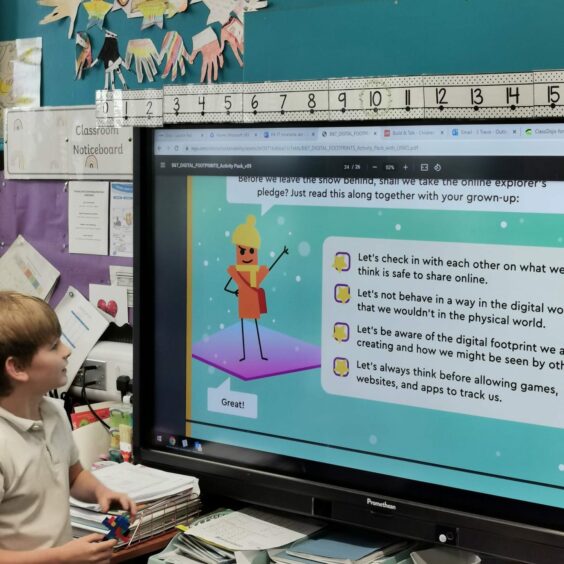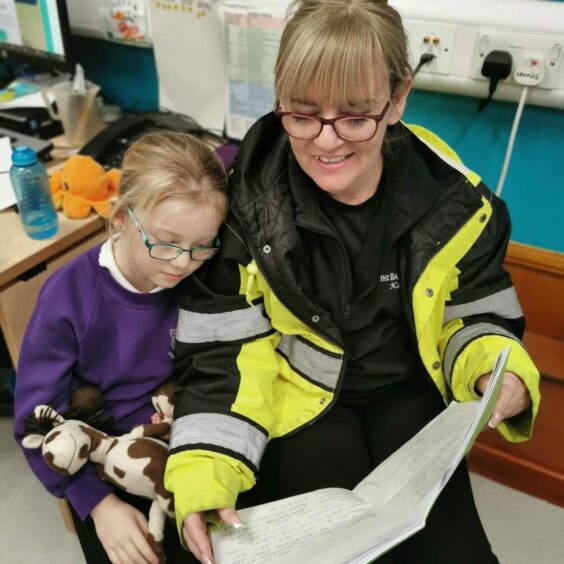An Elgin primary school has become one of the first in Moray to win a digital schools award.
When Seafield Primary School launched its digital education project, they soon realised that everyone had something to learn.
The kids might know the tech, but the adults are there to show them how to use it responsibly in the real world.
The adults even learned a thing or two about their own digital footprint – a realisation that had some parents sheepishly setting down their smartphones.
The project showed how technology is helping schools to bridge the gap with home life and make learning relevant in ever more creative ways.
Covid changed everything
We hear this phrase so often it’s becoming a cliche, but lockdown truly changed the face of education.
When the school gates closed, new opportunities opened up. And from those dark times a whole new paradigm emerged.
Teachers and parents were forced to embrace online learning resources, often with a helping hand from none other than the pupils themselves.
And where notes from school were often to be found crushed at the bottom of a schoolbag, classroom apps became more commonplace. For many schools, digital communication with parents is now the norm.
Seafield was no different, and with new digital options unlocked, the school had no interest in going backwards.
“During Covid, digital technology became a vital means of communication for our teachers and pupils,” explains depute head teacher Karen Taggart. “Lessons would be delivered using online methods and children could access different technology to complete their work. This meant that we all learned very quickly what teaching technology methods were available and how to use them.
“On returning to school, we continued to use technology to have strong home school links and keep those open chains of communication.”
From internet safety to computational thinking
But once those communication channels open, the challenge becomes keeping them safe.
Enter the national Digital Schools Awards scheme. It’s designed to promote, recognise and encourage a whole-school approach to digital technology. Last month, Seafield became one of the first schools in Moray to achieve the award.
Interestingly, their work around ‘digital’ is far more broad reaching than you might expect. One of the main threads is internet safety, and pupils of every age are learning how to protect themselves online. This includes identifying age-appropriate apps, securely managing login information and managing any online interactions.
Then there’s an introduction to coding, with some help from building blocks and the classic Lego.
But beyond that, children are also learning about their own internal computers. Karen explains:
“Children have also developed their computational thinking and realised that this may not necessarily be on a computer!
“By following a recipe or science experiment correctly they are using computational thinking. It has happened across all the classes and even into PE lessons.”
Karen says her pupils have found the digital project empowering. Older pupils have acted as digital leaders and helped younger children to work through the topics. “They’ve seen how hard teaching is and the patience required,” laughs Karen.
She also recalls one young pupil, who believed they couldn’t write. With the help of the computer, they were able to type a detailed story on the keyboard.
“We use different methods of technology available to support our learners,” says Karen. “It helps develop that positivity of ‘I can’ attitude and sense of equality to achieve.”
Where’s your calculator now?
Last month, parents and carers were invited into Seafield to celebrate their digital schools award. It was the first time post-Covid that the school was able to welcome visitors back into classrooms.
Karen says the parents were “amazed” by how the children shared their learning.
“Our pupils spoke so well and were confident to do so,” says Karen. “Our vision is that learning empowers and values everyone at Seafield, and the children definitely demonstrated this. We were delighted with the positive response from our community.”
There were a few laughs, too. Parents learned about their digital footprint, and were shocked to realise in many cases it was larger than their child’s. “They felt they are quite often nagging the children to get off technology at home whereas they may use it more themselves,” says Karen.
There were also some wry comments about parents’ own school days, when they were told maths was important because nobody would be carrying a calculator around. Of course, today, everyone has a calculator on their phone.
It highlighted the sheer pace and scale of digital change in just a generation or two.
“Children are the technology experts and the adults learn a lot from them,” says Karen. “But at the same time it is vital we teach them how to be safe when using technology and that the same etiquette rules apply, whether you are talking to the person face to face or through an online conversation. We emphasise the value of kindness.”
Some lessons, it seems, are timeless.
More from the Schools & Family team
Safer Internet Day: Ellon and Hazlehead pupils help launch national online safety project
New medical simulation facility gives UHI a competitive edge




Conversation